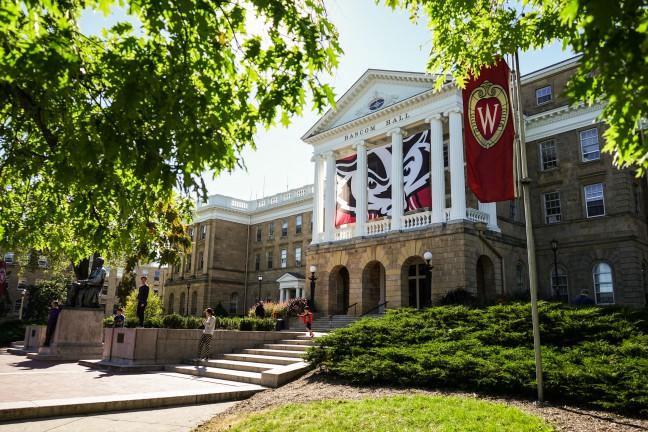After receiving a letter from Dean of Students and Vice Provost for Student Life Lori Berquam, Muslim student leaders have pushed for further action from the University of Wisconsin to make their community more visible on campus.
In the letter, Berquam informed the members of the Muslim Student Association of the recent work she has undertaken to improve the experience and visibility of Muslim students on campus.
 While more still needs to be done, Razan Aldagher, president of the MSA, described the letter as a “great step in the right direction.”
While more still needs to be done, Razan Aldagher, president of the MSA, described the letter as a “great step in the right direction.”
Aldagher said UW law professor Asifa Quraishi-Landes set up a meeting with the Division of Student Life after the Presidential election last year.
The meeting, Aldagher said, was about the treatment of Muslim students and other minorities on campus after the election. After the election, many Muslim students felt unsafe on campus and the reporting of hate incidents increased.
“Since Trump’s election, we’ve faced a lot of incidents where Muslim women have faced racist comments, hate and bias,” Aldagher said. “Our main goal was to address where to move on from there.”
Berquam was eager to meet with Quraishi-Landes and the MSA after their first meeting with the DSL, Aldagher said, because she was “concerned, especially about Muslim students.”
From these discussions, Aldagher said Berquam committed to making real changes for Muslim students on the UW campus, most importantly involving the mental health of Muslim students who have reported hate and bias incidents.
One of the most important outcomes from the initial conversation, Aldagher said, was a commitment by Berquam to hold a meeting with the MSA to make clear what resources are available for students who experience hate or bias incidents.
Aldagher pointed to “Let’s Talk,” a walk-in mental health counseling service within University Health Services, as an example of one of these resources. She said the program is a great way to “divert from the stigma attached to mental health.”
“Lori was really excited, and her goal was to increase visibility of Muslim students on campus,” Aldagher said.
Muslim Student Association to receive segregated fees for first time
One way to increase the visibility of Muslim students, Aldagher said, would be to include them in advertising and marketing campaigns on campus.
This means including more women in hijabs, more people of color and more Muslims in marketing and advertising campaigns on campus so all students know Muslim students exist on campus and play a role in decision-making, Aldagher said.
Increased visibility for Muslim students can also come in the form of additional and more clearly marked prayer and reflection rooms for Muslim students, Aldagher said.
Currently, Aldagher said UW has several “hidden” prayer/reflection rooms for Muslim students around campus, located at Union South, the Multicultural Student Center, Nancy Nicholas Hall and College Library.
Dema Jaber, a Muslim UW student, cited the lack of spaces for Muslim students to pray as a huge issue for the UW administration to rectify with the Muslim student population.
“Something that we Muslims need is a much larger safe space area,” Jaber said. “The amount of prayer areas that we have is not enough.”
Muslim students and allies discuss impact of election results
Jaber expressed frustration with the few number of prayer areas, and said the far distances between the prayer areas that do exist make them hard for students to use effectively.
The mosque in Madison is too far for use by students throughout the day, as it lies a half hour away from campus, Jaber said.
“If I walk one block, I’ll find three [Christian] churches,” Jaber said.“When I look at campus overall, we have one mosque and I think that’s very sad to hear.”
While Jaber thanked Aldagher for her efforts in engaging Berquam and the university administration in a discussion about these topics, she also urged Muslim students on campus to continue the conversation and demand actual action from the university.
Aldagher said the meetings between the MSA and the DSL will be continuous, and another meeting will occur in late October.













